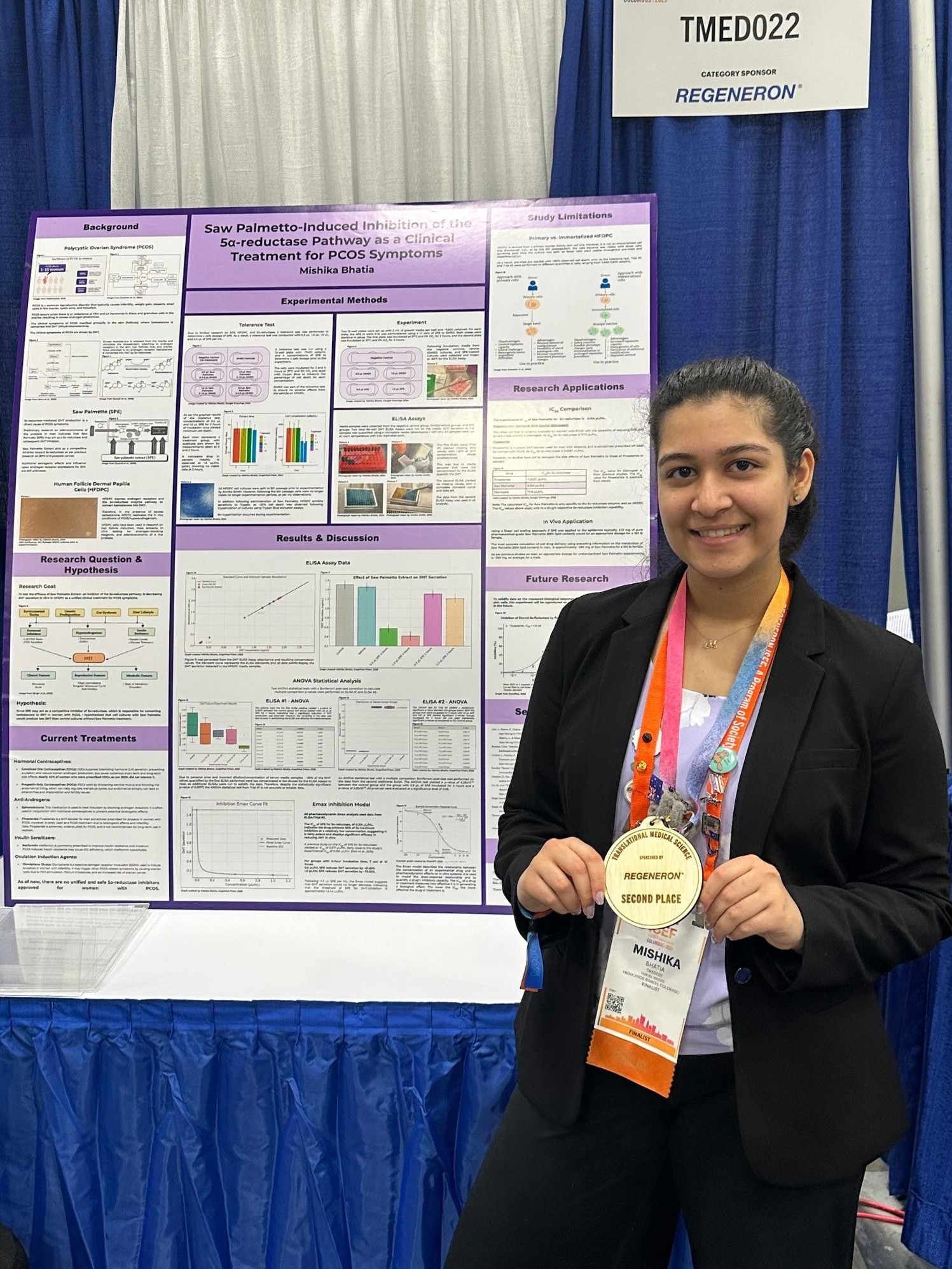Revolutionizing PCOS: A High School Scientist Paving the Way for Women’s Health Advances


When navigating the tumultuous waters of adolescence, most teenagers grapple with typical challenges such as balancing academic responsibilities and extracurricular activities. However, Mishika Bhatia, a high school student at Rock Canyon High School in Colorado, has faced a personal challenge that is far more complex: a diagnosis of polycystic ovary syndrome (PCOS). This hormonal disorder, which affects approximately one in ten women globally, remains significantly under-researched, leaving many patients without effective treatment options.
Upon her diagnosis, Bhatia encountered a common scenario for women suffering from PCOS: a limited range of treatment options, primarily focusing on birth control pills as the go-to solution. She quickly recognized this approach as inadequate, often overshadowing the varied symptoms and indicators of PCOS. Instead of yielding to frustration, Bhatia transformed her discontent into determination, initiating a journey toward finding better treatment alternatives.
Motivated by her personal experience, Bhatia engaged in her school’s biotechnology program under the guidance of Susanne Petri. This program not only nurtured gifted science students but also encouraged them to pursue ambitious research endeavors. With Petri’s mentorship, Bhatia embarked on an extensive research project focused on uncovering potential therapies aimed at targeting the underlying biological mechanisms of PCOS, rather than merely alleviating symptoms.
Her quest for knowledge led her to collaborate with Dr. Joshua Johnson at the University of Colorado Anschutz Medical Campus, where she discovered a noteworthy correlation between PCOS and prostate cancer. Both conditions involve the enzyme that regulates dihydrotestosterone (DHT), a hormone that significantly influences PCOS symptoms. Bhatia’s innovative approach involved testing a plant-derived inhibitor to reduce DHT production, yielding promising results in a cellular model.
Bhatia’s formidable efforts culminated in earning second place in the Translational Medical Science category at the Regeneron International Science and Engineering Fair (ISEF), a prestigious science competition for high school students. Nevertheless, for Bhatia, the recognition was secondary to the personal empowerment she gained through her research. She remarked, “The results gave me something bigger than recognition…a sense of control over my own health and hope that women like me don’t have to settle for symptom management that doesn’t work.”
Now, Bhatia is committed to developing what she refers to as “comprehensive, symptom-based treatments” for PCOS. Her goal is to move beyond traditional methods like hormonal contraceptives to unveil solutions that directly address the condition’s biological drivers. By investigating the intricate relationships among hormones, metabolism, and inflammation, she aspires to pioneer a new direction in the treatment of PCOS, emphasizing the human complexities and challenges faced by patients.
As Bhatia eloquently stated, “PCOS isn’t rare, but it is underserved.” Her enthusiasm for contributing to meaningful research underscores a pressing need for advancements in the understanding and management of this widespread yet often neglected condition. Through her work, she hopes to inspire a wider conversation about PCOS and foster a future where comprehensive treatments become the standard for women affected by this disorder.





